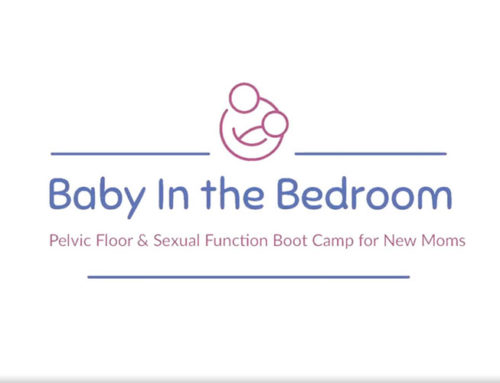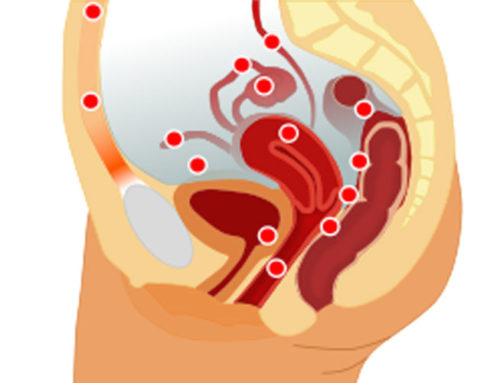Reclaiming Desire in Long Term Relationships
 While men and women at any age or partner status can experience distressing low levels of sexual interest, it is a common complaint in long term relationships that desire wanes over time. Many people experience the stress of modern day life including long work hours, never ending family responsibilities, and sheer redundancy of the same type of intimate activities with one partner lead to dissatisfaction and friction in what becomes a sex-starved marriage.
While men and women at any age or partner status can experience distressing low levels of sexual interest, it is a common complaint in long term relationships that desire wanes over time. Many people experience the stress of modern day life including long work hours, never ending family responsibilities, and sheer redundancy of the same type of intimate activities with one partner lead to dissatisfaction and friction in what becomes a sex-starved marriage.
“You never want to” complaint from one partner is often followed by “why do you always bother me for sex” conversations that lead to resentment and arguments. Yet there are many simple and effective strategies both in regards to medical treatments to address these concerns, as well as sex therapy strategies to improve intimacy that can foster a thriving erotic life for partners decade after decade.
Overcoming Desire Difference
Many couples experience high levels of sexual and intimate interest at the beginning of a relationship. Wanting to be together all the time often evolves over six months to two years into reduced sexual urgency and frequency. When both people have a reduced interest in sex at a comparable pace, there is no issue. But typically couples fall out of synch with one another in regards to how often they are interested in intimate activities, leading to a problematic discrepancy in desire. Chronic conflict over years of differing levels of interest in sexual activity can erode a relationship, and this deterioration can extend to nonsexual aspects of the relationship when bickering, loss of closeness, and generalized irritation with one another predominates. Desire differences often leave partners feeling rejected, unloved, and confused about the relationship.
Evaluating and treating couples with desire discrepancy is often much more successful when it is approached with a fusion of medical and mental health fields. There are numerous factors that influence an individual’s sexual drive which include physical maladies as well as relationship and personal mental health factors. Likewise, a decline in sex drive seldom results from one single cause and therefore one single treatment is often shortsighted.
The sexual vitality of a relationship is a reflection of the physical health of each partner, as well as the emotional, intellectual and spiritual health of the partnership. Fundamentally reclaiming desire is about reinventing balance among these complex multitude of areas of our lives that contribute to our intimate health.
Medical Causes of Desire Differences
Men and women are both susceptible to a wide variety of medical causes that influence our sexual function and interest as we age. Pregnancy and childbirth induce significant hormonal changes for women, and can cause damage to the pelvic floor leading to painful intercourse. Women who are lactating commonly experience a hormonal change that leads to decreased estrogen in vaginal tissues and dry friction pain with sexual activity. Furthermore menopause is known to lead to increased risk of sexual dysfunction in regards to reduced sexual interest, painful intercourse, and decreased sexual response.
Men’s sexual function is also closely tied to hormonal balance and endocrine health. Men’s testosterone levels decline with age, and hypogonadism is a medical condition that can result if levels become reduced enough to cause changes in testicular function. Erectile dysfunction is now clearly understood to signal possible developing vascular disease and conditions such as diabetes and heart disease. Prostate disease is also a common factor that influences a man’s sexual function.
Both men and women can experience sexual side effects of numerous types of medications. Some forms of birth control result in decreased sexual interest or orgasm response in women, as well as many antidepressant medications for both men and women. Rarely an underlying brain tumor can cause sexual specific symptoms.
Sex Therapy Considerations for Desire Discrepancy
The field of sex therapy is designed to evaluate and address relationship causes of sexual desire discrepancies, and suggest strategies to revive connection. Sex therapy often starts by evaluating what each partner in the relationship in fact wants out of sex, and a discussion regarding the benefits of intimacy in partnership. Studies have found that sex therapy strategies to improve sexual satisfaction in long term relationships range from regular planned date nights, doing new activities together, sleeping naked at night beside one another, to utilizing more gratitude based language in conversation and increasing playfulness in other areas of life.
Treatment Options
Often times the individual with lowered sexual interest presents for clinical treatment to improve their interest in sex, but it is important to know that treatment success rates improve significantly if a partner is involved in the process.
Addressing individual medical causes of sexual concerns is often a first step to improving desire in a relationship overall. Whether that is treating hormonal imbalance, pelvic pain, or erectile dysfunction, improving mechanical functioning can be an important first step in reviving sexual interest.
Having a candid conversation about what would make a sexual experience better is necessary. Most people are interested in having sex when it amazing. Yet when the quality of the sexual experience declines in a long term relationship, it can be awkward or uncomfortable to discuss or explore what would improve the emotional as well as physical experience.
The Bottom Line to Reviving Hotness in Together Forever
For many couples in long term relationships both individual physical and mental health factors as well as relationship specific issues are at play when sex stops working between two people. Addressing underlying medical disorders is as important as exploring and recreating the emotional environment to foster renewed interest in intimacy. Eroticism and gratifying sexual relations decade after decade requires active engagement, and willful intent to maintain thriving health in body and mind, for both each individual in the relationship as well as for the spirit of the partnership itself.
























